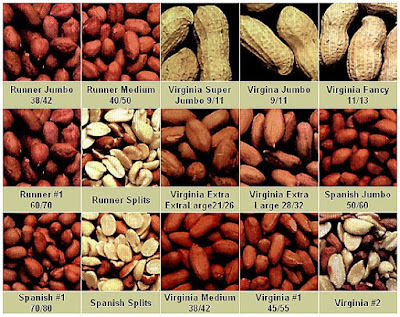Our dear nation, Nigeria is currently in a state of economic downturn with a number of states unable to pay the salaries of their workers. This is primarily due to the fact that the states have mainly focussed on the allocations due to them from the federal government. This poses a great concentration risk that have recently crystallised into a major chaotic situation in which many of them are now owning several months of salaries and also unable to meet other obligations.
In response this problem, the states are now planning to diversify their
economies and focus on other sources of generating revenue. However, they seem
to be focussing more on taxes and levies from populace who do not even have
enough to take care of themselves and their families.
The aim of this article therefore is to demonstrate how the Nigerian
states can effectively generate revenue on foreign exchange directly from
exporting farm produce and commodities from their states.
The Structure
This will involve a public private partnership arrangement that involves
the state government, a private organisation and the farmers in the state. In
this arrangement, the state government forms a trading company (in which she
owns the majority shares). This company will buy the agricultural commodities
from the farmers, prepares them for export, negotiates the export contract,
ship the goods to the final destination and presents document to the importer's
bank for payment. The farmers form themselves into small groups of cooperatives
registered with the state, cultivate the commodities needed for export, deliver
them to the designated collection centre and sell them to the trading company. The
state government provides lands for the farmers, train the farmers in good
agricultural practices, provides seedlings and give the farmers, agree a buying
price with them (through the trading company) and issue a payment guarantee
(that assures the farmers of payment within about 120 to 180days after delivery
to the designated collection centre
The Dynamics
The step by step processes are as follows:
- The state government determines the commodity to be exported based on employment generation, profitability, export market demand and potential to produce locally in the state
- The state government partner with farmers and consultants to train the farmers and monitor the practices on the farm
- The state government partners with a private organisation to form a trading company
- The state government facilitates the aggregation of intending and existing farmers into cooperatives
- The state government engage a consultant to train the farmers in global good agricultural practices (Global GAP)
- The state government provides seedlings for the farmers and all other farm inputs
- The state government company issues a purchase order to the farmers stating that payment will be made within 120days after delivery to the designated collection centre
- The state government issues request for the issuance of a payment guarantee from a commercial bank in favour of the farmers
- The trading company look for buyers, negotiates and signs the export contract
- The trading company receives, reviews and accept the terms of the letter of credit
- The farmers cultivates the crop and delivers the harvested commodities to the designated collection centre
- The trading company prepares the goods for export, do all the pre export documentations and deliver the goods to the shipping line
- The trading company ship the goods and deliver this shipping document to the local bank
- The local bank sends the documents to the importer's bank abroad for payment based on the terms of the letter of credit
- The importer's bank effects payment within the period stipulated in the letter of credit
- The local bank receives payment and credit the account of the trading company.
- The state government sells the foreign exchange to the local bank to get Naira
- The state government pays all the cooperatives that supply the commodities based on the agreed price in the purchase order
- The state government pays the private organisation in line with the shares it holds in the trading company
- The state government can then utilise the balance to funds her budget
Kindly note that some of the roles apportioned to the state government
in this dynamic can be done through the trading company setup by the
government
The Impacts
The impact of the suggested model for a state government goes beyond the
generation of revenue via export, it has an humongous impact on employment
generation and increased economic activities in the state. This in my opinion
is a more effective, efficient and enduring model for diversifying the economy
of any state in Nigeria. This model can also be replicated by the federal
government at the federal level especially for the exportation of solid
minerals.
Finally, if we want to diversify our economy to create enduring
wealth for our children, If we want to diversify our economy to create
extensive wealth for the country, If we want to diversify our economy to
create everlasting wealth for the continent of Africa, aggressive drive for
non-oil export by both the federal and state government is the best way to go
For questions on
this thought, you can reach me via email to bayemibo@3timpex.com







